Radiofrequency ablation versus percutaneous ethanol injection for hepatocellular carcinoma: a meta-analysis of randomized controlled trials
- PMID: 25889181
- PMCID: PMC4355988
- DOI: 10.1186/s12957-015-0516-7
Radiofrequency ablation versus percutaneous ethanol injection for hepatocellular carcinoma: a meta-analysis of randomized controlled trials
Abstract
Background: Radiofrequency ablation (RFA) and percutaneous ethanol injection (PEI) are treatment methods for patients with early-stage hepatocellular carcinoma (HCC) who are not suitable for surgery. Although some reports indicate that RFA is better than PEI, results from previous reviews and analyses are inconsistent. Therefore, this meta-analysis was performed to more thoroughly evaluate the effects of these treatments in patients with HCC.
Methods: A literature search was conducted using the Excerpta Medica dataBASE, PubMed, the Cochrane Library, the American Society of Clinical Oncology database, the China National Knowledge Infrastructure database, the Wanfang database, the Chinese Biomedical Literature Database, and the Chongqing VIP database without language limitations. The primary outcome evaluated was overall survival, and secondary outcomes included complete response and local recurrence. Comparisons were made between Asian and European studies.
Results: Total pooled and subgroup analyses of Asian studies that included selection biases revealed that RFA is superior to PEI with respect to overall survival (hazard ratio (HR), 0.54; 95% confidence interval (CI), 0.37 to 0.80; P < 0.01) and complete response (relative risk (RR), 1.10; 95% CI 1.03 to 1.18; P < 0.01). However, no significant difference was observed between RFA and PEI in the European studies. In Asian studies, RFA was associated with a lower local recurrence rate than PEI at 1 year (RR, 0.44; 95% CI 0.20 to 0.95; P < 0.05) and 3 years (RR, 0.35; 95% CI 0.22 to 0.55; P < 0.01). However, local recurrence was significantly lower after only 3 years in European studies (RR, 0.50; 95% CI 0.32 to 0.78; P < 0.05).
Conclusions: RFA was only superior to PEI in Asian studies that included selection bias. Thus, there is insufficient evidence to support the idea that RFA is superior to PEI for patients with cirrhotic HCC. Additional large-scale, multicenter, randomized controlled trials that control for selection bias are needed to fully elucidate the optimal treatment method for HCC.
Figures
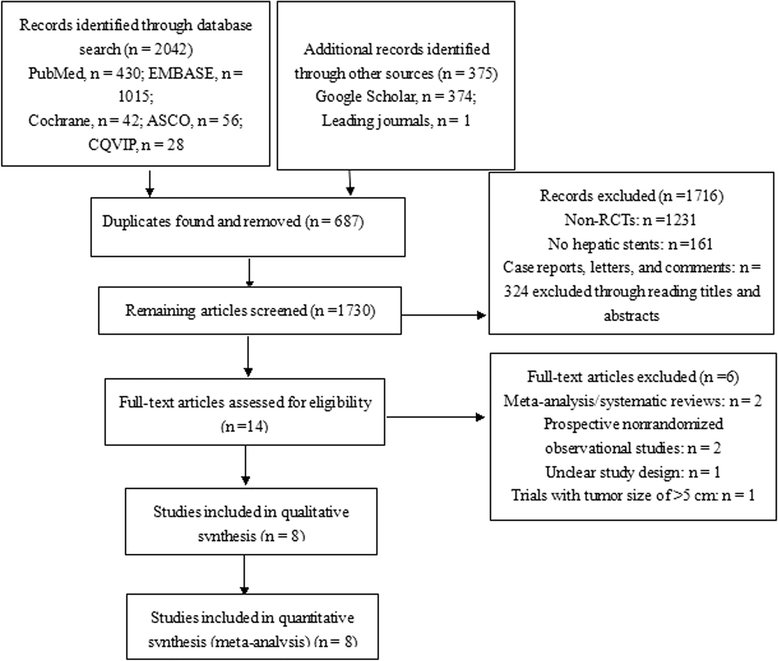
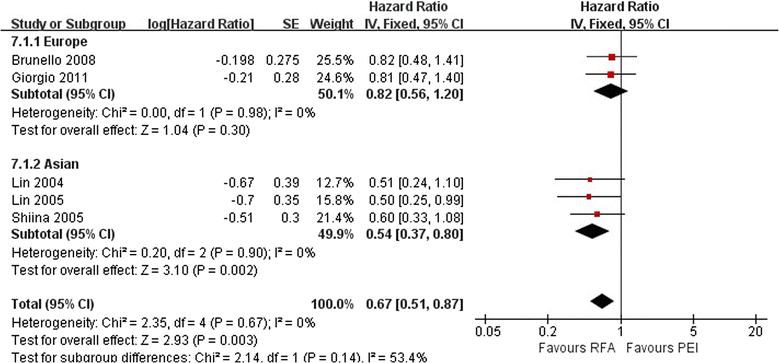
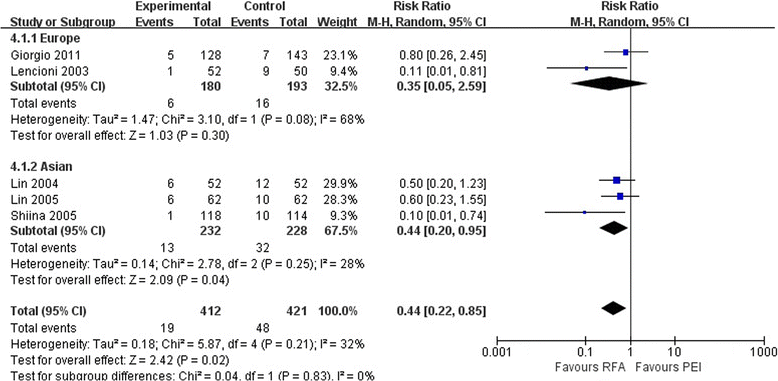
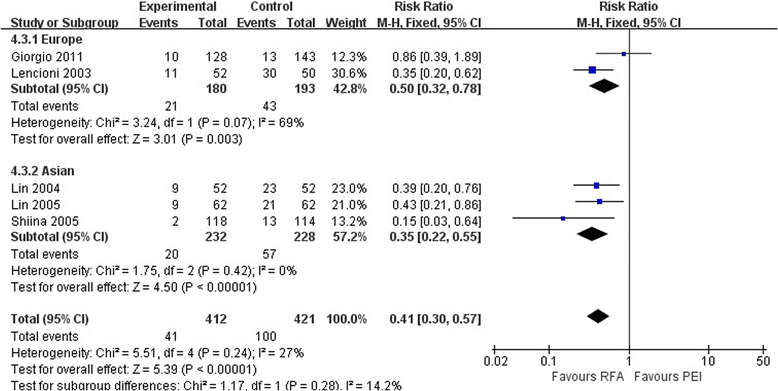
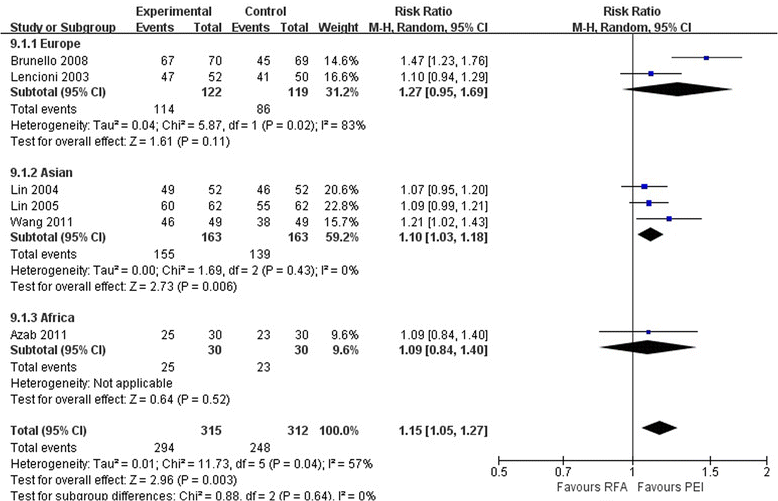
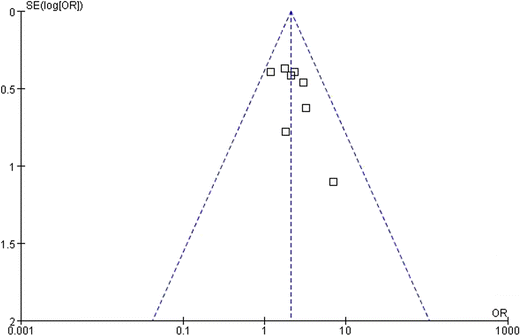
References
Publication types
MeSH terms
Substances
LinkOut - more resources
Full Text Sources
Other Literature Sources
Medical

